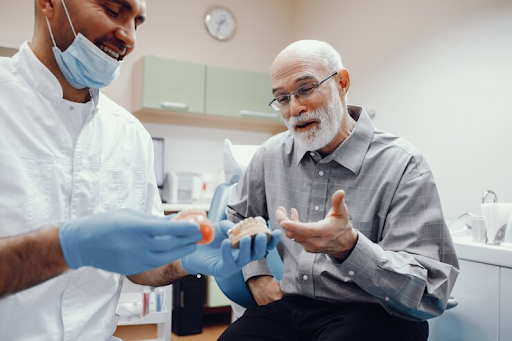Tooth crowns and dental implants are essential components of modern dentistry. They play a crucial role in restoring and maintaining oral health. This article will explore the significance of tooth crowns, their application in dental implants, and their benefits.
What Are Tooth Crowns?
Tooth crowns, also known as dental crowns, are caps placed over damaged or decayed teeth. They restore the tooth’s shape, size, and function. Crowns are typically made from materials such as porcelain, ceramic, or metal.
Types of Tooth Crowns
There are several types of tooth crowns available. Porcelain crowns are popular due to their natural appearance. Ceramic crowns are also favored for their aesthetic qualities. Metal crowns, while less common, offer exceptional durability. Each type of crown serves a specific purpose, depending on the patient’s needs and preferences.
The Role of Tooth Crowns in Dental Health
Tooth crowns provide a protective layer for damaged teeth. They prevent further decay and enhance the tooth’s strength. Crowns also improve the appearance of teeth, contributing to a confident smile. They are essential for maintaining the overall structure and function of the mouth.
Introduction to Dental Implants
Dental implants are artificial tooth roots. They are surgically placed into the jawbone to support replacement teeth, such as crowns. Implants are made of biocompatible materials like titanium, which integrates with the bone. This creates a strong foundation for the artificial tooth.
How Dental Implants Work
The process of getting dental implants involves several steps. First, the implant is surgically placed into the jawbone. Over time, the implant fuses with the bone in a process called osseointegration. Once the implant is secure, an abutment is placed on top. Finally, a tooth crown is attached to the abutment, completing the restoration.
Caring for Tooth Crowns and Dental Implants
Proper care is essential to ensure the longevity of tooth crowns and dental implants. Regular brushing and flossing are necessary to maintain oral hygiene. It is also important to visit the dentist regularly for check-ups and cleanings. Avoiding hard foods and habits like teeth grinding can prevent damage to crowns and implants.
Benefits of Dental Implants
Dental implants offer numerous benefits. They provide a permanent solution for missing teeth. Implants also prevent bone loss in the jaw, which occurs when teeth are missing. Additionally, they improve chewing and speaking abilities. Implants look and feel like natural teeth, enhancing overall oral health and appearance.
The Connection Between Tooth Crowns and Dental Implants
Tooth crowns are a critical component of dental implants. After the implant is securely integrated with the jawbone, a crown is placed on top. This crown acts as the visible part of the replacement tooth. It provides the necessary function and aesthetics, making the implant look and work like a natural tooth.
Choosing the Right Tooth Crown for Dental Implants
Selecting the appropriate tooth crown for a dental implant is crucial. The choice depends on factors such as location, aesthetic preferences, and budget. Porcelain and ceramic crowns are ideal for front teeth due to their natural appearance. Metal crowns, while less visually appealing, are suitable for molars due to their strength and durability.

